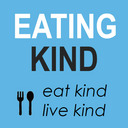After doing hours and hours of research (luckily work hasn’t been super busy, not that I’m using work time for anything not work-related….) I found out that there are some resources out there that help consumers figure out where to shop and eat. I suppose it’s been easier than I expected to make this change, although I’ve been focused mostly on grocers, not restaurants.
Most restaurants I did ask (I won’t name names) had absolutely no idea what I was asking about. A waiter at one restaurant thought I wanted free chicken when I asked if they offer free-range chicken.
A chef at a German restaurant downtown San Jose got very agitated when asked if the restaurant serves humanely-raised meat. He had asked me “if I was some kind of a vegetarian“, and without waiting for me to respond went into a tirade about how “there are six billion people on this planet and we rule the earth“, that if “the cows and pigs weren’t cheaply raised in feedlots, many would starve” and that “the little suckers are going to die anyway, so who cares.” His last comment about the “little suckers” was accompanied by a taser/electrocution noise. He must have added that for emphasis.
As annoyed as I was at his heartless words, it was a great learning experience and I walked away with two lessons. One, his statement about the cost-effectiveness of feedlots is a great one. Solution to the problem is not just about awareness and accessibility but also about affordability. While I don’t mind and can pay a few more dollars for free-range eggs and pastured beef, many others may not be as fortunate. It’s something I need to be more sensitive about and something I need to keep in mind as I talk to grocers, restaurants, and consumers.
Two, I’m starting to realize that animals who end up “food” after they die, are often thought of as “food” even while they live. Their ticket to the slaughterhouse defines them as beef and pork when they are still cow and and pig. Which makes it easy for us not to care, because they are just food, right? After all, I don’t care if my potatoes are thrown around carelessly or cringe at the image of my lettuce packed closely with a thousand of other lettuce heads. To the argument, “if they are going to die anyway, who cares how they live”, I have a very simple answer. Last time I checked we, as in human beings, will also one day die, and there are very few of us out there who don’t care how we live meanwhile. In fact, we spend an exorbitant amount of time, money, energy, you name it, to make sure that our lives before our final hour comes, are as good as they can possibly be. Our unavoidable death does not diminish the quality of our lives, and it shouldn’t for our hoofed friends either!
